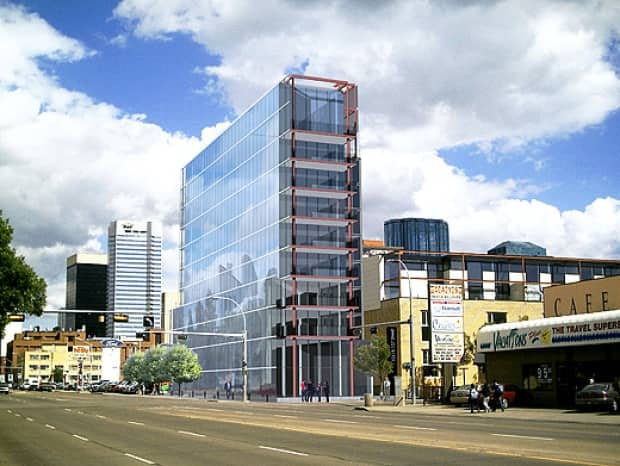Edmonton launches retrofit loan pilot in bid to reduce emissions

Edmonton has started a new program to give property owners a more affordable way to boost their energy efficiency and help the city reduce greenhouse gas emissions.
City council unanimously approved a bylaw Thursday to enact the Clean Energy Improvement Pilot Program and give the city authority to borrow $8.5 million for it.
In the two-year pilot, residents and commercial operators can borrow money directly from the city and pay off the loan gradually through property taxes at a low interest rate.
Residents can apply for loans between $3,000 and $50,000 while commercial owners can borrow up to $1 million.
Based on similar programs in Toronto and Halifax, the city estimates the average resident may apply for about $16,000 while a commercial building owner may look for about $500,000.
Coun. Michael Walters said the program is a practical and affordable financing tool.
"I jokingly called it solar panels for the proletariat," Walters said during the meeting.
"It's a really inclusive way to allow people who wouldn't otherwise be able to afford the upfront costs necessary to pay for these kinds of important changes to their homes to reduce emissions."
Most typical energy-saving retrofit programs cost citizens a lot up front before they're able to get rebates from the federal and provincial governments, Walters said.
The city's clean energy pilot paves the way for 80 residential and 20 commercial projects with a minimum threshold of three upgrades per project.
Retrofits essential
Peter Amerongen, a member of the city's Energy Transition Climate Resilience Committee, welcomes the program as a good start to a burgeoning industry.
Buildings are a big contributor to greenhouse gas emissions, Amerongen noted.
"Deep energy retrofits at industrialized scale are absolutely essential for a habitable climate," Amerongen said. "Deep energy retrofits reduce the energy needs of the building enough so that it can be powered from renewable sources."
Amerongen noted that 70 to 80 per cent of the buildings in Edmonton will still be around in 2050 — the worldwide target date to stop the average temperature on the planet from rising by more than 1.5 C.
It's expensive to replace buildings, he noted, and the energy that goes into making and installing the materials would result in higher emissions.
Existing retrofit programs are often piecemeal and not effective, he noted, such as adding insulation without having airtight windows.
Not enough
The city is borrowing nearly $8.5 million from the Federation of Canadian Municipalities to fund the clean energy program, which will be administered by the Alberta Municipal Services Corporation.
Mike Melross, program director with the Alberta Ecotrust Foundation Climate Innovation Fund, said at the council meeting that while he welcomes the project, the nearly $8.5 million allotted for the loans isn't a large amount for two years.
"This modest program, combined with the extended pilot timeline, will be insufficient to catalyze the retrofit industry and build the capacity that we need over the next decade."
Buildings must reduce their energy footprint by at least 50 per cent and include on-site renewable energy sources to cover 30 per cent of the building's energy needs, he said.
Amerongen also said even with the new program, the city and the country are lagging behind in projects and steps that truly cut out greenhouse gas emissions.
"It's unlikely that we've made the progress we need to hit the 1.5 degree scenario," he told council.
All projects under the new program must be completed by end of June 2023.

 Yahoo Finance
Yahoo Finance 